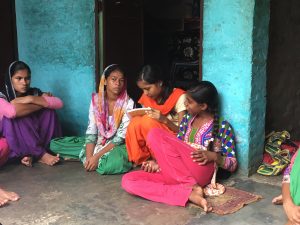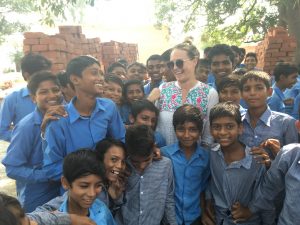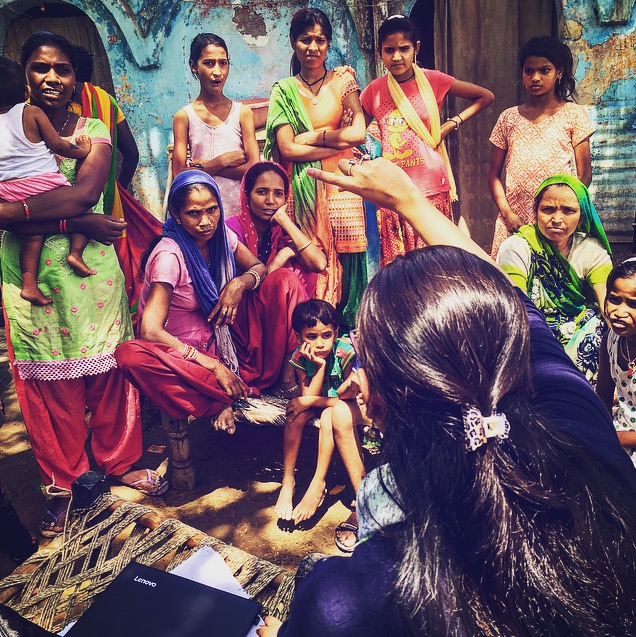Being a CAPI Intern in India
Guest post by Rachel Barr, on her CAPI (Centre for Asia-Pacific Initiatives) internship in India.
Dear future intern,
When you first tell people that you are beginning a journey and heading off to India on a CAPI internship, there will be an eclectic mixture of responses. It will go something like this: “Wow, what a life changing experience,” or “Are you sure that’s a good idea? It’s really dangerous there” (said the person who has never been there). These responses can leave you feeling nervous, excited, and create major expectations about what is going to happen.
After India, I do feel changed, but not in the “Eat, Pray, Love” kind of way, so shed those expectations. I want to tell you about the three ways I feel change, but before I do, I am still processing everything so my change is changing all the time.
Firstly, I have strengthened my ability to find comfort in discomfort. There is times that you will feel challenged and uncomfortable, embrace those times because that is when you will do the most learning. Ideas around privacy are not universal, they vary. When I was staying with a family in Haryana, an area that is quite rural, it was one of my most challenging experiences but most meaningful.
I stayed in a village community where people were constantly stopping by the house, children were asking to play, and I was sleeping in the same room as other members of the family. This wore on my mental health and comfort but I pushed through and the lessons I learned from truly immersing myself in a collectivist culture I will hold with me for a long time.
Secondly, I started to see the way we do things in an individualistic culture as just one way people live rather than the only way. It is easy to normalize the way we live in the west because we learn these cultural cues from a young age but being introduced to how others live, sleep, play, and eat reformulates the idea of what is normal.
 Although it is hard in the moment, try to remain cognizant that the opportunity of shifting your ways of thinking by immersing yourself in another culture is not given to everyone so value those experiences. I was introduced to how people get married and find their partners which varies but typically has a lot more family involvement than we do in western cultures.
Although it is hard in the moment, try to remain cognizant that the opportunity of shifting your ways of thinking by immersing yourself in another culture is not given to everyone so value those experiences. I was introduced to how people get married and find their partners which varies but typically has a lot more family involvement than we do in western cultures.
At the beginning of this journey, I would have told you that if my family meddled into my romantic affairs, I would be oh so mad. I was given the opportunity to watch as families made decisions that included the whole family about marriages, purchases of fridges, and other things.
The way that families made these collective decisions, although not the “norm” for me, was thought provoking. I saw a lot of positives and openness that my family lacks. This shifted my way of thinking about all the possible ways people choose partners, instead of thinking that those ways were weird, I began thinking they were just different and had value in them.
 Thirdly, the last lesson I want to share with you is my constant interaction with privilege and power. Privilege and power plays out in everything in a Canadian context but a lot of times it can be covert which can be extremely dangerous. I want to talk about being cognizant of the power and privilege that you will interact with when you are overseas.
Thirdly, the last lesson I want to share with you is my constant interaction with privilege and power. Privilege and power plays out in everything in a Canadian context but a lot of times it can be covert which can be extremely dangerous. I want to talk about being cognizant of the power and privilege that you will interact with when you are overseas.
Since I have been back from India, one of the constant questions I get asked is, “Did you feel safe as a woman?” Although that’s a well intentioned question, it misses something incredibly important. It misses that I have white skin as a woman.
 My answer to that question is, well I felt very safe but my experiences are very different from women that are more vulnerable and marginalized because of how power and privilege plays out.
My answer to that question is, well I felt very safe but my experiences are very different from women that are more vulnerable and marginalized because of how power and privilege plays out.
When I was travelling on buses and in the subway it became clear quickly that men kept their distant from me and gave me the space I needed most of the time.
I noticed that Indian women were not given that same space so I asked my coworker about my experience and he simply told me that men typically give me space because they know if I accuse them of grabbing me, they would be prosecuted, but that wasn’t the case with a lot of Indian women, particularly women living in poverty.
My last lesson is to remind yourself that although you are fully trying to immerse yourself into the culture, you do come with an incredible amount of power and privilege and that means that your experiences in India or wherever you go will not be the experiences of a lot of people that you live and work with.
So, to you, a new intern, I just encourage you to have an open mind and an open heart. Let all your senses experience your environment. Learn to listen deeply so that you can seek to understand what may seem incomprehensible in the context of your own worldview.
Some days are very hard. The simplest tasks can be so complex and frustrating. Take care of yourself through healthy eating, sleeping and appropriate self-care. You will look back on this time as an incredible experience and a time for great growth and self-reflection.
Try new foods, learn a little bit about the language, experience the music, the art, and the history of the people and of the country you are in. Give what you can and value this incredible opportunity that will provide you with a lifetime of memories.
This post is from the CAPI Intern Blog, where you can read more stories from the field.





Very thoughtful! It’s difficult to articulate the complexity and nuances of traveling and cultural differences – this is great! Keep writing